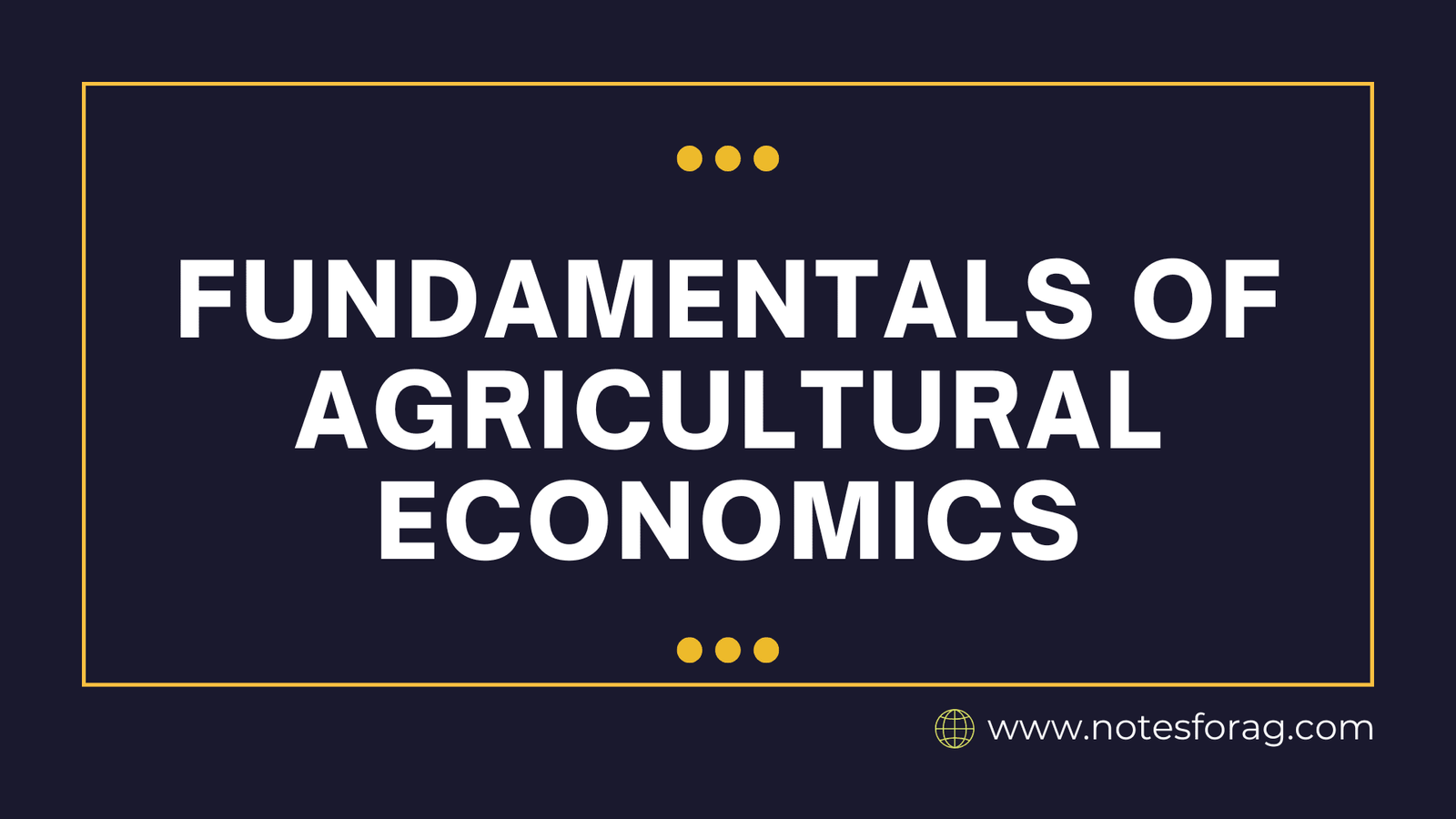Agricultural Economics is a specialized branch of economics that focuses on the application of economic principles and methodologies to agricultural production, distribution, and consumption. It examines the role of agriculture in the economy, the relationships between farming and other sectors, and the policies that affect agricultural development. At its core, agricultural economics seeks to understand how agricultural resources are allocated efficiently to maximize productivity, improve farm incomes, and support sustainable food production.
The field covers a broad range of topics, including production economics, farm management, agricultural finance, rural development, agricultural markets, and international trade. It also explores the impact of government policies, environmental factors, and technological advancements on agricultural systems. With the growing global population, climate change, and evolving market dynamics, agricultural economics plays a vital role in shaping modern agricultural practices and ensuring food security.
Table of Contents
Objectives of Agricultural Economics
The major objectives of Agricultural Economics are:
- Provide strategies to optimize resource use on farms, boosting productivity and minimizing waste.
- Develop approaches to improve farm income by managing costs effectively and accessing better markets.
- Analyze how agricultural markets work, how prices are determined, and how external factors like weather and policy changes affect them.
- Investigate economic models and policies that can uplift rural communities, reduce poverty, and improve living standards.
- Promote practices that enhance long-term agricultural productivity while protecting natural resources and reducing environmental harm.
- Provide insights to policymakers about the economic effects of agricultural decisions, including trade policies, subsidies, and land reforms.
- Study the economic factors that influence food production and distribution to ensure widespread access to nutritious food.
- Examine international trade policies and help farmers, especially in developing countries, access global markets for better opportunities.
Key Areas of Agricultural Economics
The topics covered by Agricultural Economics are:
- Production Economics:
- Focuses on the relationship between inputs (land, labor, capital, and technology) and outputs (crops, livestock) in agriculture.
- It analyzes the cost structures, productivity, and efficiency in agricultural production.
- Emphasizes understanding the optimal allocation of resources to maximize yield and profitability.
- Farm Management:
- Involves the application of economic principles to farm decision-making, including budgeting, investment analysis, and financial planning.
- Examines the management of labor, equipment, land, and other resources to maximize farm income and minimize risk.
- Agricultural Markets and Prices:
- Studies how agricultural commodities are traded, how prices are determined, and how market forces affect supply and demand.
- It includes the analysis of market structures (e.g., perfect competition, monopoly) and the role of government policies such as subsidies, tariffs, and price controls.
- Rural Development and Policy:
- Focuses on the economic aspects of rural areas, including poverty, rural unemployment, and the role of agriculture in economic development.
- Investigates government policies that affect agriculture, such as trade policies, land reforms, and environmental regulations.
- Agricultural Finance:
- Deals with the financial aspects of agriculture, including credit, investment, and financial risk management.
- It studies how farmers finance their operations through loans, grants, and other financial instruments and the role of banks and financial institutions in agricultural development.
- Resource Economics:
- Explores the efficient allocation and sustainable use of natural resources in agriculture, including water, soil, and land.
- Examines issues related to land use, environmental degradation, and the economic consequences of resource depletion.
- International Agricultural Trade:
- Studies the global agricultural markets and the trade policies that affect the international exchange of agricultural commodities.
- It includes understanding trade agreements, tariffs, and their impact on local and global economies.
- Agricultural Policy and Public Economics:
- Focuses on the role of government in regulating the agricultural sector through subsidies, tariffs, price controls, and environmental regulations.
- Analyzes the impact of policies on farmers, consumers, and the overall economy.
Importance of Agricultural Economics
The importance of agricultural economics are:
- Agricultural economics helps in identifying ways to increase productivity through the efficient use of resources, innovation, and improved farming techniques
- Understanding market dynamics helps stabilize prices, allowing farmers to better plan production and manage risks, and ensures fair prices for both producers and consumers.
- Agricultural economics provides the tools to assess the effectiveness of agricultural policies and guide the development of policies that promote food security, sustainability, and rural development.
- It enables countries to better understand international agricultural trade, positioning them to compete globally by improving product quality and market access.
- By studying the economic aspects of resource use, agricultural economics helps in making informed decisions about land, labor, and capital allocation to maximize efficiency and minimize environmental impact.
- The integration of environmental concerns into economic models ensures that agricultural systems are not only productive but also sustainable, reducing the risk of long-term resource depletion.
Conclusion
Agricultural economics plays a crucial role in optimizing agricultural practices and ensuring the long-term sustainability of food systems. Focusing on efficient resource use, improving farm incomes, and understanding market dynamics, provides valuable insights that help farmers and policymakers make informed decisions. Additionally, agricultural economics supports rural development, promotes sustainable farming practices, and contributes to global food security by improving access to markets and enhancing productivity. As agriculture faces evolving challenges like climate change and increasing global demand, agricultural economics will continue to be essential for creating resilient, efficient, and sustainable agricultural systems worldwide.

